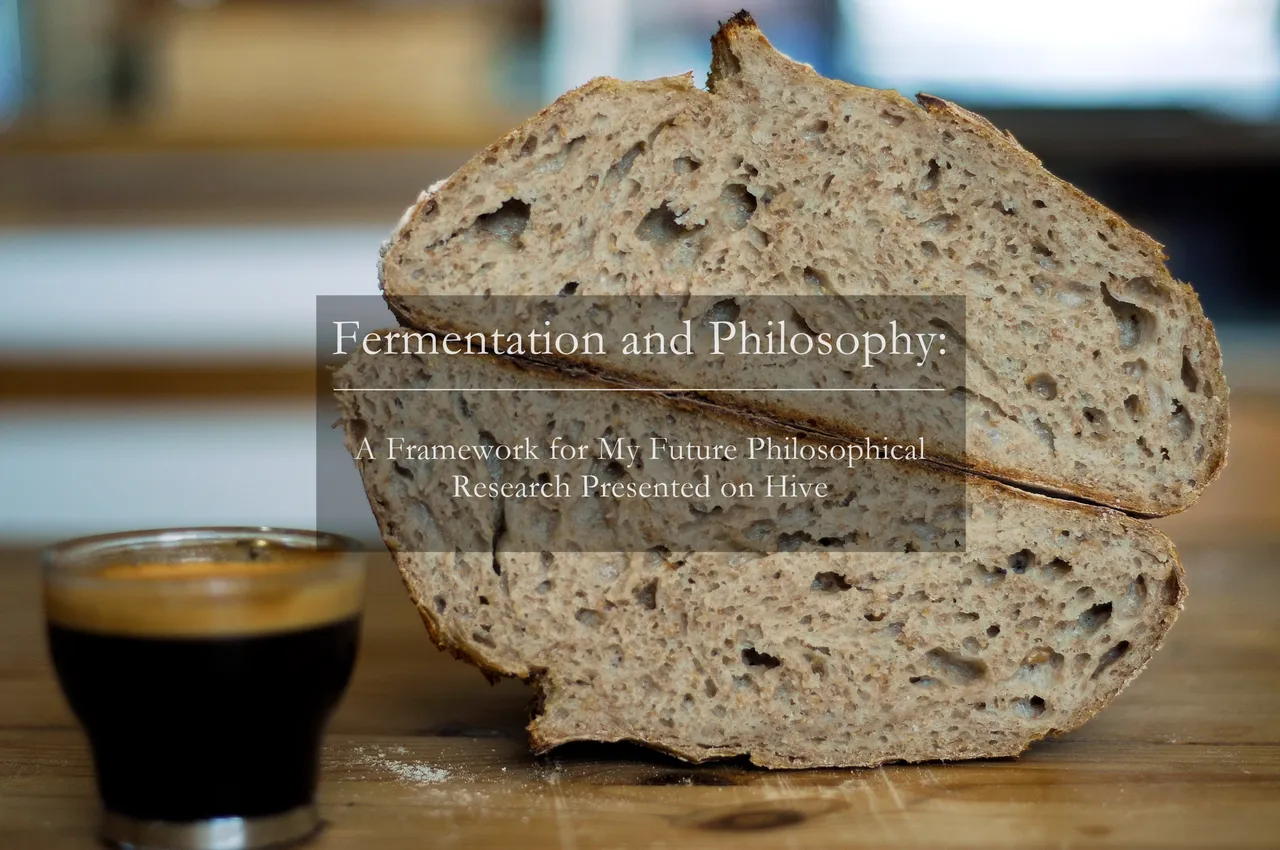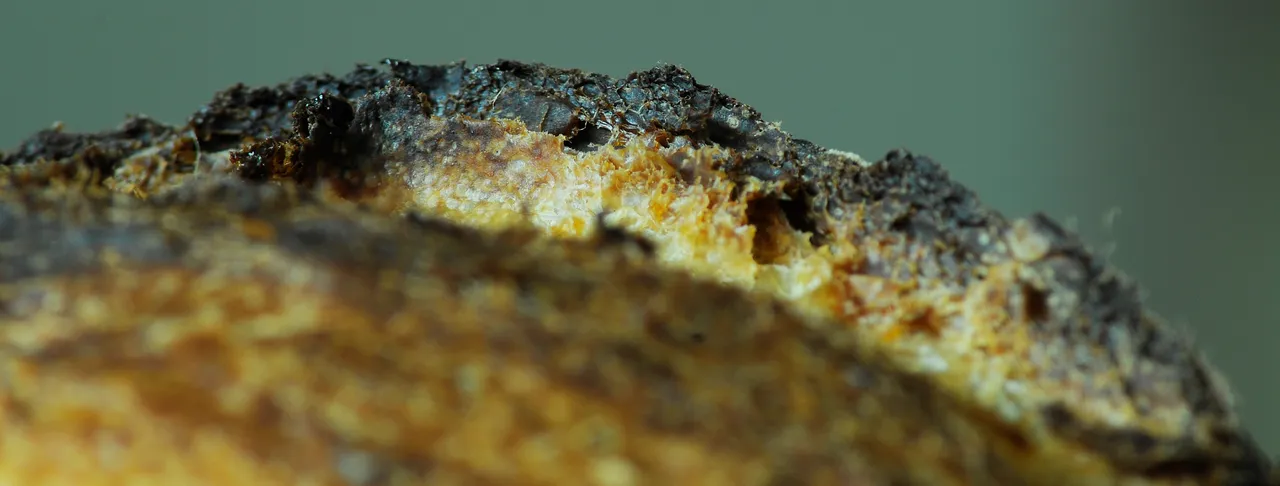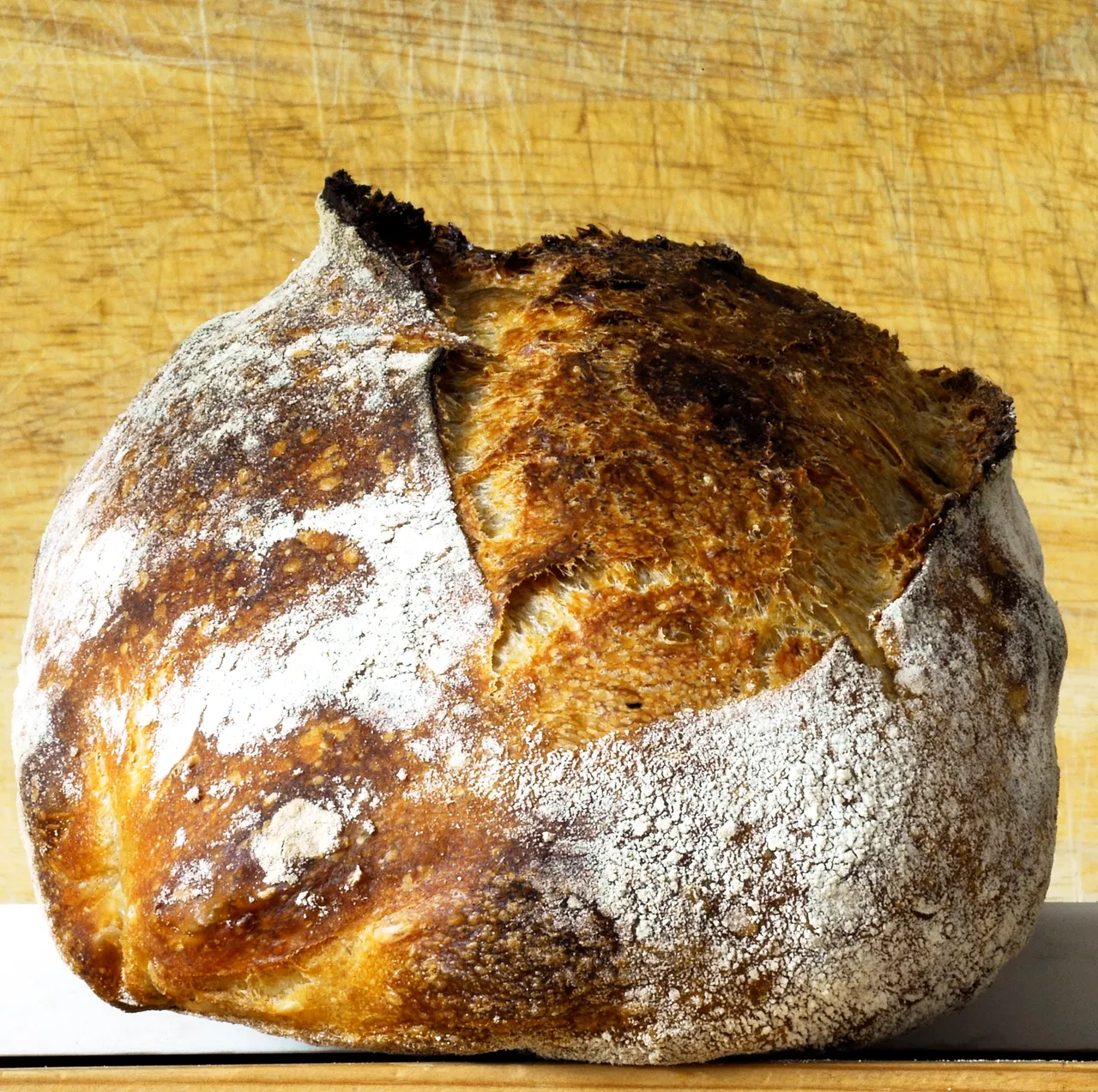
Introducing the Concept of Fermentation and Philosophy (Again) and Philosophical Counselling
Philosophy is a tremendously vast area or field of knowledge and wisdom. It is comical that even in professional academia we talk about “philosophy” as if we can understand what it is. Read any paper in which the author deals with the concept of philosophy, and you will be aware of the harsh and sometimes arbitrary dichotomous thinking regarding philosophy. Continental vs. Analytic philosophy, Asian vs. Western vs. African (etc.) philosophy, Academic vs. practical philosophy, good vs. bad philosophy, the list goes on. Picking up a book on “what is philosophy” will give you a one-sided answer, picking up one of the books that tries to give you an “objective” answer to what philosophy is, will give you an oversimplified answer. Grasping what philosophy is, is like grasping at a cloud. You will not grab the cloud, but your hand will become wet with the cloud. It will, in some sense, whet your appetite, maybe awakening in you a never-ending search for what it exactly is.
Asking what exactly philosophy is, is a meta-philosophical question, or a philosophy question about philosophy itself. I like to say that these types of questions are almost as if you take a step backwards, or a step out of the crowd. I do not think this is the same as trying to be more “objective” or trying to get a “God’s eye view” of a situation, no. Instead, I think the meta-philosophical question or “taking a step backwards” position is one of reflection or “fermentation”.
Hence, philosophy and fermentation.

This project of comparing and introducing fermentation and philosophy has been ongoing for 4 odd years. The project itself is a growing, or rather fermenting, product of my research into what exactly philosophy is and how one might use philosophy in therapy and counselling. After completing my master’s thesis on philosophy and philosophical counselling, I came to the rather illusive or evasive or elusive conclusion:
“Philosophical counselling depends on how you define philosophy, and philosophy as a concept does not want to be defined.”
Like art, we can always try to define it, but at that very moment we rigidly define it someone will point to something and shout: “But is this not also art?”. We can then re-define art so that it incorporates the newly found art that previously escaped the bounds of the definition, but this will need to happen infinite times. But this, according to me, is exactly what art is: it tests the bounds of our defining capabilities. Or, in other words, the defining of art is itself a creative process in the sense that once you define what art is you will unknowingly create a category of non-art, which itself then becomes art. It is a rather paradoxical way of seeing it. Philosophy, for me, is the same. It escapes the attempts that is made to define it.
A surpassingly difficult question then arises: how do you define philosophy so that you can help a client in philosophical counselling?
I think we cannot. But what struck me recently in some of my new research is how much philosophy leans towards being wholly hermeneutical. That is, interpretation. The African philosopher Tsenay Serequeberhan, influenced by Martin Heidegger and Hans-Georg Gadamer, holds a similar notion in his book The Hermeneutics of African Philosophy: Horizon and Discourse. Philosophy is always an interpretation or a reworking of ideas, or relating this to my own work, fermentation.
Philosophy is interpretation, and interpretation is to ferment.
Before qualifying this position, I go back to the start of this journey and give a short summary of the road to this point. (If you want to skip this part, go on to the section below.)
A Summary or Ferment of Sorts

In the first post with this title, I asked the simple question of why does philosophy and fermentation go hand in hand? I provided a rather convoluted answer: philosophy and fermentation are both lifestyles; furthermore, fermentation (i) changes something, (ii) makes said something better, and (iii) it breaks it down into more manageable parts; the philosopher, subsequently, (i) sits with a problem, (ii) he/she “ferments” (read: thinks or reads about, or meditates on) the problem, and (iii) he/she then provides the fermented problem; and lastly, fermentation helps with aging and preserving food; the philosopher, to quote myself:
“takes in the “raw” world and preserve it with his/her subjective experience thereof, but also puts it into a state that can be “aged”.”
In the second post, Why Thyme Matters for the Baker and the Philosopher, I contemplated the idea that the baker and the philosopher both have an affinity for time in the sense that both the act of fermentation and philosophizing “take time to develop”.
“The philosopher needs to “ferment” his/her ideas, give them time to develop into a good and strong argument.”
In the third post, a rather poetic post, I begin to form the idea that fermentation tries to answer the question of the meaning of life. It is interesting to see how your own ideas develop. In this post, I started to formulate an idea that I only discovered later on: philosophy helps with the question “How might I live”. Again, I poetically write:
“Like fermentation we keep on going, we eat we sleep we go on without stopping. But we also stand still and appreciate the beauty of life in certain moments.”
In the fourth post, I introduced salt as one of the key ingredients that “helps with ageing and preservation. A key idea of fermentation and salt is that it opens up the possibility of experimentation. I discussed three important factors of salt and fermentation, namely, (i) salt delays or helps lengthen fermentation, (ii) salt kills unwanted bacteria and yeast, and (iii) it might help with aging an already fermented product. This is related to philosophy in the sense that it helps us extend our own lives. I concluded that:
“like salt that is necessary for fermentation to happen, and for it to extend the life of the product, so philosophy will help with the process of thinking.”
In the fifth post, I try to come to grips with our ever and faster changing world. As an answer to this problem of coping with change, I concluded in the sixth post that we need to “ferment our minds” in order to help us look into the future and not get stuck in the present.
Fast forward three years, that is, about 2020, I incorporated philosophical counselling into the equation. Or, in other words, I equated philosophical counselling and fermentation due to the philosopher’s unique ability to ferment complex philosophical texts and to relate them to everyday life.

A Novel Framework or Lens or Point of Departure or Way of Seeing (and so on)
I stated above: “Philosophy is interpretation, and interpretation is to ferment.” Using this as a framework, or a point of departure, I want to argue that fermenting in philosophy can be beneficial and can lead to some interesting results. How can this be used as a framework? What even is a framework?
A framework (or a lens or a point of departure or a way of seeing) is basically a structuring mechanism. It helps you already see the way in some predefined way, or to read a text in a specific manner. I propose that fermentation and philosophy can be used as a specific point of departure that can help us see texts in a new light. This is obviously a highly subjective claim to make, and it might be only related to my way of seeing the world.
In the above summary, I hope that three things became clear regarding fermentation and philosophy:
- (i) thinking (read: fermenting, philosophising) about a subject might lead to change,
- (ii) this change can lead to a more manageable product, and
- (iii) subsequently, the product might be healthier, might be aged or stored/preserved.
Fermenting My Ideas: Hive and My Research
This has been a very long post basically to state that I want to reinstate my series of Fermentation and Philosophy with my recently finished research, and my ensuing research. I feel that I am in a unique position to relate this information because of the research I have done and will do in the future. I want to ferment these ideas and present them in hopefully re-worked and pre-digested forms. In our modern times with so much focus on immediacy/instant gratification and viewing things from only one fixed stand/viewpoint, I think “fermenting” and then producing something will yield novel and new results. Maybe it might yield nothing, and like a bad batch of beer or sauerkraut, we throw it away and start over.
The Difference between Then and Now: Concluding Anew

What will be different from then (i.e., pre-2020) and now (i.e., post-2020)? It is too soon to say, but like a good ferment, we will taste the product constantly to guide our next movement. I am starting my Ph.D. now, and I am not sure what it will have in store for me. I also have so many interesting avenues I want to explore, especially Dialogue and Fermentation, with focus on the work of Martin Buber. I also want to scour Hive for other philosophers, or writers with philosophical inclination. With the recent re-focus on community and engagement, I feel that the time is ripe to encourage philosophical dialogue and discussion. Fruitful and hopefully fermented.
If you have followed the older posts, and/or you read the whole post and you made it down here, thank you so much for investing your time. I really hope this project might yield some fruitful and fermented results. If you have any suggestions or comments or ideas, please don’t hesitate to comment them! See you in the next post. (I want to see if I can post once a month, or maybe twice a month, if you are interested to view them).